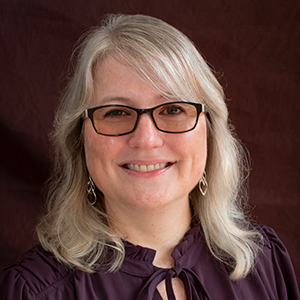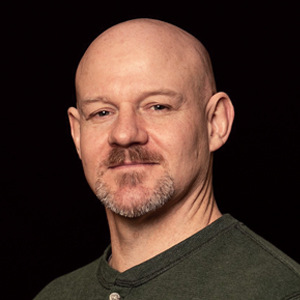F(i/u)nding your next hypothesis
One of the most daunting moments in anyone’s career is realizing that you need a new idea. For a research scientist, this realization typically coincides with the assembly of a grant proposal.
If your ideas seem derivative, pedestrian or uninspired, you will have a hard time depicting them as anything else. In the early brainstorming period, you need to develop a genuine fascination. Scientific funding has an unintended validating effect for researchers, but history only reports discoveries; no textbook ever lauded the career funding associated with a foundational idea. Inquiry and analysis remain the bases of scientific achievement.
In recent history, there was a period when senior faculty would, with some pride, quote the number of years “their” grant had been funded. The current generation of researchers does not expect such funding continuity as the norm. Nor do they expect that one area of accomplishment will be sufficient to sustain the four decades of their career.
Arguments can be made for and against merit-based funding, for which the researcher’s reputation and past research successes are the primary review criteria. In recent years, we have seen the reinstatement of this idea in the form of the National Institutes of Health’s Maximizing Investigators’ Research Award and Method to Extend Research in Time mechanisms, known as MIRA and MERIT. However, these grants only equal about 6% of all those funded via the R01 mechanism. Most researchers must seek funding based on their current ideas.
The current generation of researchers is drawn necessarily into cycles of renewal and reinvention. New ideas can come in a variety of forms: They can be a branch of a path you are already on or a new path altogether. Either way, new ideas require courage, a willingness to be inspired, and an investment of time for literature research and the development of preliminary evidence.
How might you identify and develop a new idea?
- Listening: Attend seminars and be open to ideas of colleagues in your field (enzymology for us) or more broadly (biology/chemistry). Audrey developed a new idea after receiving an email from a trusted friend and colleague who sent a recently published and rather overstated article that claimed the focus of both of their labs was out-of-date. While not accurate, it was certainly a spur.
- Lists: We have a shared drive titled “grant ideas.” It contains nine project folders, two of which we have gotten funded. More than half of the projects remain in the gestational stage. When we hear or see something that sparks our interest, we drop the idea into a folder for future evaluation and maturation.
- Digging: Spend some time digging up new ideas in the literature. For example, review articles frequently have “unanswered questions” sections, which provide a foundation of prior work and a solid premise for future investigation. In contrast, articles from high-impact journals often have leading-edge, high-risk, high-reward results that can serve as the basis for projects that will elaborate knowledge in a new field. This is especially useful for developing cross-disciplinary projects in which you apply your skills to expand on the work of someone from a disparate field.
- Teamwork: Sometimes, to stay afloat while new ideas are hatching, it is wise to contribute your expertise to other people’s projects. A strong collaboration frequently leads to a new inspiration.
- Life: Paying attention to major life events can be a source of invention. For example, one of Graham’s current projects evolved when a childhood friend succumbed to brain cancer. After reading about the treatment plan, Graham chose to initiate a new project about an enzyme that is implicated in the disease’s progression. Similarly, we are all aware of the potential of contributions to the worldwide effort to thwart the march of COVID-19.
A new project is only viable if it is intrinsically interesting to the researcher, feasible at the bench and inspiring to other researchers. Possibly the most difficult skill to develop is the ability to recognize which ideas satisfy all three criteria.
Many of us have fallen into the trap of chasing grant dollars, writing aims for a grant in response to a call for applications that does not inspire us (ask Audrey about high-throughput screening). Few aspects of research are more demoralizing than having grant funding that compels you to complete aims that do not fascinate you.
Some ideas have an easy path to demonstrating feasibility. For others, persistence is key, and some never pan out. Avoid being drawn into areas that do not readily adapt or scale to your skill set (ask Graham about RNA modifying enzymes and observations made on the micromolar scale).
Lastly, when developing your ideas for the broader scientific community, remain aware that they must be framed in a way that inspires others, including grant review panels. You need a receptive audience for your new idea, and targeting the wrong audience is futile (for example, we originally targeted our riboflavin biosynthesis grant to the wrong panel).
Being nimble has advantages for researchers at all levels, from primary investigators to trainees, and expands the discipline to which they contribute. They acquire versatility by maintaining an opportunistic and willing stance toward new problems. As researchers tackle multiple projects during their careers, this provides opportunities for continued learning and growth. In addition, the scientific community benefits from improved inclusivity of perspectives, which in turn more efficiently drives discovery.
Enjoy reading ASBMB Today?
Become a member to receive the print edition four times a year and the digital edition monthly.
Learn moreFeatured jobs
from the ASBMB career center
Get the latest from ASBMB Today
Enter your email address, and we’ll send you a weekly email with recent articles, interviews and more.
Latest in Careers
Careers highlights or most popular articles

Upcoming opportunities
ASBMB's PROLAB award helps graduate students and postdoctoral fellows spend up to six months in U.S. or Canadian labs.

From humble beginnings to unlocking lysosomal secrets
Monther Abu–Remaileh will receive the ASBMB’s 2026 Walter A. Shaw Young Investigator Award in Lipid Research at the ASBMB Annual Meeting, March 7-10 in Washington, D.C.

Chemistry meets biology to thwart parasites
Margaret Phillips will receive the Alice and C. C. Wang Award in Molecular Parasitology at the ASBMB Annual Meeting, March 7-10 in Washington, D.C.

Decoding how bacteria flip host’s molecular switches
Kim Orth will receive the Earl and Thressa Stadtman Distinguished Scientists Award at the ASBMB Annual Meeting, March 7–10, just outside of Washington, D.C.

Defining JNKs: Targets for drug discovery
Roger Davis will receive the Bert and Natalie Vallee Award in Biomedical Science at the ASBMB Annual Meeting, March 7–10, just outside of Washington, D.C.

Upcoming opportunities
No matter where you are in your career and what future path you aspire to, everyone needs leadership skills. Join ASBMB for practical strategies for building and practicing leadership skills.


